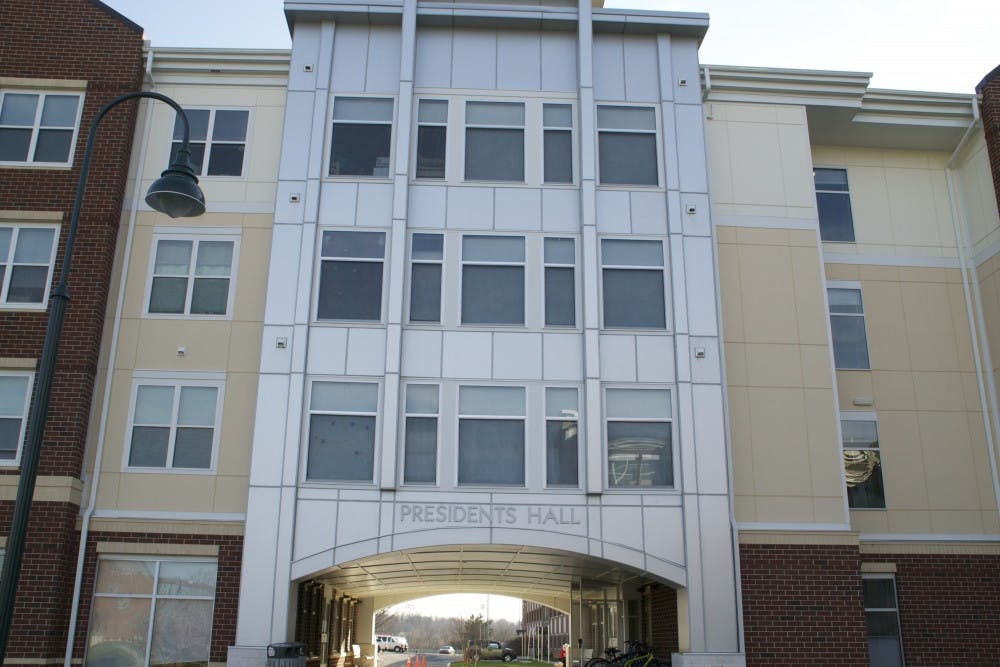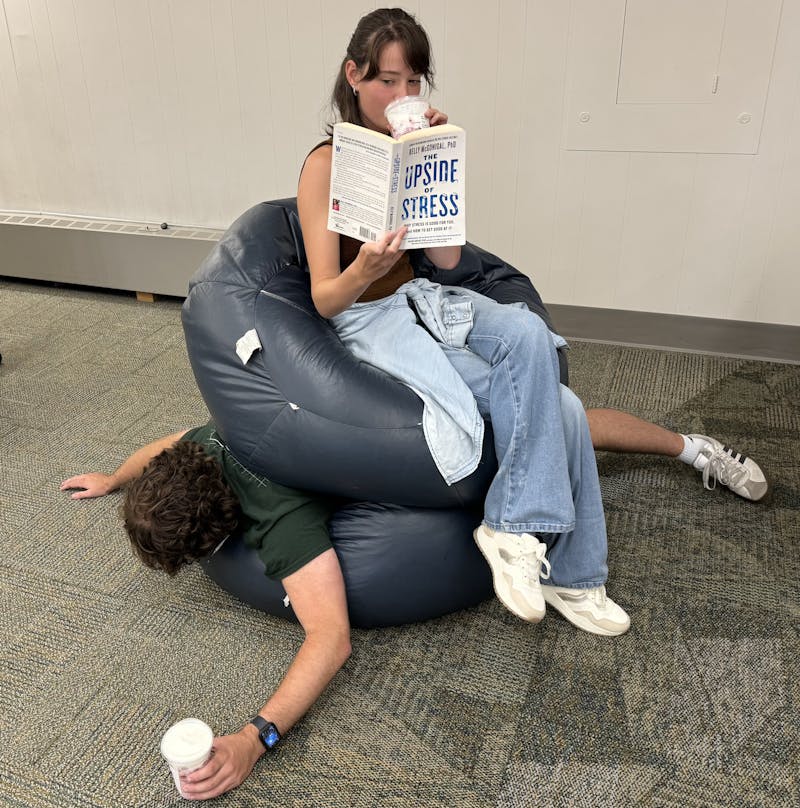There is no doubt that the new suite-style residence halls on campus have a different atmosphere than the traditional halls.
To an outside observer, it could seem that the suites, with their private bathrooms and ample security features, are less community-oriented than the traditional halls, but is that really the case?
In the suite-style buildings, outside doors lock automatically. Kayla Strohl, who moved from the now-demolished Lackhove Hall to Presidents Hall, said this affected her interactions with other residents.
“I didn’t really have any communication with anyone on my floor, unlike in the old dorms where people left their doors open and everyone knew who was living next to them,” Strohl said.
Victoria Knight, who now lives in McLean II, agreed with Strohl. She compared her experience in McLean II, a suite-style hall, to life in Naugle Hall, a traditional hall.
“In Naugle, no one had true privacy. Our entire wing kept their doors open and everyone wandered in and out of rooms at all times of the night. We trusted each other and it was more family oriented,” Knight said.
“It makes my job easier when residents have their doors open,” said Tara Owens, a resident assistant (RA) in Mowrey, a traditional hall.
Despite the apparent concern of closed doors, methods used to create home-like vibes do not seem to be specific based on the type of hall.
To make her residents feel more at home, Owen uses different approaches.
“Try to remember their names. Create an open environment so the students feel comfortable. Greet them and ask them questions about their day and things of that nature,” Owen said.
“It really starts with opening when we start in August and the RA’s knocking on doors and introducing themselves and introducing one suite to another suite. ‘Oh you’re interested in X, Y and Z? So and so down the hall is also interested in X,Y and Z.’ and the RA becoming the catalyst and the link between all those rooms and not being intimidated by these big suites behind closed doors,” said Jen Milburn, assistant director of Residence Life.
According to Milburn, the suite-style residence halls have more community space than the traditional halls, including larger kitchens, game rooms and study lounges. These spaces, Milburn said, will get more use over time, as RAs and students adjust to the suite-style buildings.
“As time goes on, the kitchens are used constantly, the game rooms are used constantly. It’s easier than, I think, the outside person would assume, for the RAs to go and knock on doors and be like ‘Hey, let’s go make cupcakes in the kitchen! Let’s go watch the game on the big screen! Let’s go play foosball!’ because it really does happen every day, it’s pretty awesome,” Milburn said.




The Slate welcomes thoughtful discussion on all of our stories, but please keep comments civil and on-topic. Read our full guidelines here.